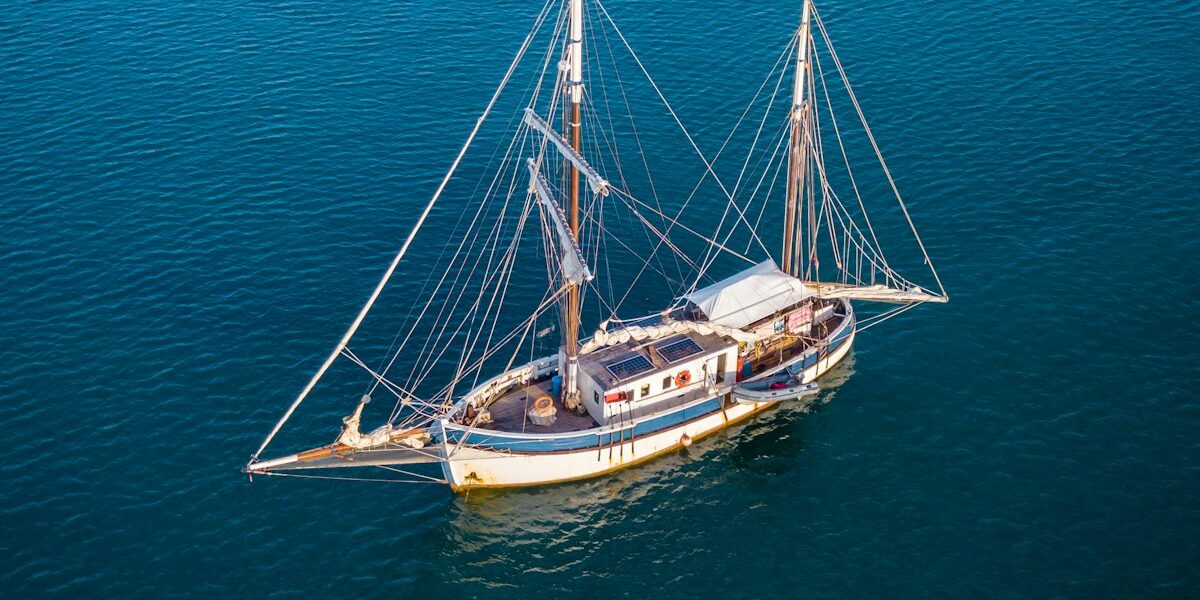Why Are We Here: Unveiling the World of Yachting
The world of yachting is one that combines luxury, adventure, and a deep connection to the sea. Many are drawn to it, but few understand the intricacies behind this unique lifestyle. Yachting is more than just a symbol of wealth and status; it represents a passion for exploration and freedom.

Yachts come in many shapes and sizes. They can range from small sailing yachts to massive motor yachts equipped with cutting-edge technology. The variety allows enthusiasts to engage with the experience that best suits their desires. For some, the thrill of navigating the seas under sail is the ultimate escape. For others, the comfort and amenities of a motor yacht offer a lavish retreat.
The history of yachting dates back centuries. The word “yacht” comes from the Dutch word “jacht,” which means “hunt.” Originally, yachts were light, fast vessels used by the Dutch navy to chase pirates and smugglers. Over time, they became associated with leisure and recreation, especially among the elite. The first recreational yachts appeared in the 17th century, often reserved for royalty and nobles.
Modern yachting has expanded far beyond its early elitist roots. The industry now offers a range of options that cater to different interests and budgets. People charter yachts for a variety of reasons, including family vacations, corporate events, and private parties. The growth of the charter industry has made yachting more accessible to those who might not own a yacht.
Types of Yachts
There are several types of yachts, each designed for specific purposes and experiences. Understanding the differences can help potential yachtsmen or women make informed decisions.
- Sailing Yachts: These yachts rely primarily on wind power. They offer a traditional and often more challenging experience. Enthusiasts appreciate the skill required to maneuver a sailing yacht, as well as the quieter, more environmentally friendly propulsion compared to motor yachts.
- Motor Yachts: As the name suggests, these yachts use engines for propulsion. They can be large and luxurious, with multiple decks and elaborate interiors. Motor yachts prioritize comfort and have the capacity to travel swiftly over larger distances.
- Catamarans: Popular for stability and spaciousness, catamarans have two hulls and can be either motor or sail-powered. They are often favored for chartering due to their ample space, good handling, and shallow draft, which allows for closer anchorage to shore.
Yacht Ownership vs. Chartering
Owning a yacht is a substantial investment. Besides the initial purchase cost, owners must consider maintenance, crew salaries, docking fees, insurance, and more. Many yacht owners say that owning a yacht is akin to owning a small company due to the logistics involved.
Chartering offers a flexible alternative. It allows people to enjoy the yachting experience without the responsibilities of ownership. Yachts can be chartered crewed or bareboat. Crewed charters come with a professional crew, whereas bareboat charters require the charterer to have specific qualifications to operate the vessel themselves.
Fractional ownership programs are another option. These programs allow multiple people to own a share of a yacht, reducing the financial burden while still providing regular access to the vessel.
Crew Roles and Responsibilities
A professional crew ensures the smooth operation of larger yachts. The crew is crucial to maintaining safety and providing a high level of service. Typical roles include:
- Captain: Responsible for the overall operation of the yacht, including navigation, safety, and compliance with maritime regulations. The captain is the ultimate authority on board.
- First Mate: Assists the captain with navigation and performs deck duties. The first mate often supervises the deck crew and ensures equipment is in working order.
- Engineer: Maintains the mechanical and electrical systems on board. Engineers are vital for troubleshooting and repairing any technical issues during the voyage.
- Chef: Prepares meals according to guests’ preferences. The quality of meals on board is a cornerstone of the yachting experience.
- Steward/Stewardess: Responsible for housekeeping and hospitality. They ensure that guests are comfortable and that the interiors are spotless.
Technology in Modern Yachts
Technological advancements have transformed modern yachts. Navigation systems now use GPS and chart plotters to ensure precise positioning and route planning. This tech significantly reduces the risk of human error and enhances safety.
Yachts are now equipped with sophisticated communication systems. These systems enable internet access, satellite phones, and VHF radios, keeping those on board connected even in remote parts of the world.
Many yachts have incorporated eco-friendly technologies. Solar panels and hybrid propulsion systems reduce environmental impact. The industry is increasingly focused on sustainability, driven by both regulatory pressures and owner preferences.
Popular Yachting Destinations
Yachting opens up an array of exclusive destinations. The Mediterranean is a classic choice, with hotspots like the French Riviera, the Greek Islands, and the Amalfi Coast. The Caribbean offers tranquil turquoise waters and vibrant cultures. Other popular regions include Southeast Asia, the South Pacific, and the broader Indian Ocean.
These regions offer diverse experiences, from secluded anchorages to bustling ports. Yachting provides flexibility to travel off the beaten path, accessing remote islands and hidden coves where land-based travelers can’t venture.
The Social Aspect of Yachting
Yachting is a social affair. Events like yacht shows and regattas bring together yacht owners, enthusiasts, and industry professionals. These events serve as both marketing platforms and opportunities for networking and sharing knowledge.
Regattas are particularly popular in the sailing community. They offer a competitive environment where yachtsmen and women showcase their skills. Events like the America’s Cup and the Sydney to Hobart Yacht Race draw international attention.
Onboard, life revolves around guests and crew interaction. Lifelong friendships are often formed as people share unique experiences and face challenges together on the open sea.
Future Trends in Yachting
The yachting industry continues to innovate and adapt to changing times. Sustainability is increasingly at the forefront. Builders are experimenting with new materials to lessen environmental impact. Yachts of the future might rely more heavily on renewable energy sources, minimizing reliance on fossil fuels.
Autonomous technology could also become standard. The potential for remote operation and AI navigation systems could revolutionize the way yachts are controlled. However, the human touch remains critical for ensuring safe and pleasurable experiences.
Yachting remains a growing industry. Its blend of exploration, luxury, and community ensures its continued allure. Whether through ownership, chartering, or simply following its evolutionary path, yachting offers a unique way of connecting with the world’s vast oceans.
“`




Subscribe for Updates
Get the latest articles delivered to your inbox.
We respect your privacy. Unsubscribe anytime.